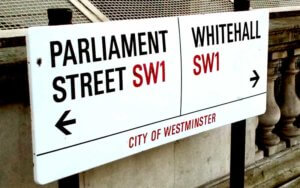Disabled people will effectively work for free for the last 57 days of this year because of the huge gap between their earnings and those of non-disabled employees, new TUC research has shown.
Disabled activists this week backed the TUC call to address what is known as the disability pay gap, which means the average disabled worker receives about £1.65 an hour, or 15 per cent, less than the average non-disabled worker*.
In its new report (PDF), the TUC branded 4 November Disability Pay Gap Day, because the gap means that the average disabled person is effectively working for free for the rest of the year.
Disabled women face an even higher pay gap than disabled men.
And disabled people with some impairments also experience far higher pay gaps.
People with learning difficulties face a pay gap of 62.6 per cent and those with diabetes have a gap of 22.8 per cent.
There are also regional differences, with the largest disability pay gap in the east of England (21.8 per cent), and the lowest in the south-west (8.5 per cent), with the gap in Wales at 17.7 per cent, Scotland at 12.4 per cent, London at 13.5 per cent, and the north-west at 9.1 per cent.
The report says the causes of the disability pay gap include the higher proportion of disabled people working part-time, which tends to be lower paid than full-time work; disabled workers being more likely to be in lower-paid industries such as care work, leisure and customer services; and disabled people being less likely to be in higher-paid roles such as managers or directors.
The gap is also caused by lower levels of educational qualifications, and the report adds: “Unlawful discrimination, negative attitudes and structural barriers are holding back disabled people both in educational achievement and progress in work.”
TUC has now launched a petition that calls on the government to make it compulsory for employers to publish their disability pay gaps.
A TUC/GQR poll also found disabled workers were far more likely to go without basics than non-disabled workers, with 35 per cent of disabled workers saying they had gone without heating on a cold day, compared to 17 per cent of non-disabled workers.
Disabled people are also far less likely to be in employment (51.8 per cent) than non-disabled people (81.6 per cent), says the report.
The government has so far refused to bring in laws requiring employers to publish their disability pay gap information.
Two years ago, in its own research – which found a disability pay gap of about 14 per cent – the Equality and Human Rights Commission called for action to improve the education of disabled pupils, tackle career stereotypes and improve the availability of flexible working, as well as calling on the government to introduce mandatory disability pay gap reporting.
Sean McGovern (pictured, centre), co-chair of TUC’s disabled workers’ committee, said: “The TUC should be congratulated for addressing this economic injustice.
“Disabled people face a host of barriers in their day-to-day lives.
“When we do manage to break the employment barriers, we are met by yet more.”
Linda Burnip, co-founder of Disabled People Against Cuts, which has backed the TUC campaign, said the disability pay gap “reflects the continuing inequalities in the education system and within the workplace that still exist and have been worsened by Tory cuts and their vile rhetoric towards disabled people”.
She called for a fully inclusive education system, restoration of cuts to disabled students’ allowance and easier access to higher education for disabled students, and for the next government to scrap the “ridiculous and completely useless Disability Confident scheme”.
But she said the most important step would be “getting rid of the Tories, who have pushed disabled people’s rights back 30 to 40 years, in the coming general election”.
A spokesperson for the Department for Work and Pensions (DWP) refused to answer questions about the report, other than pointing Disability News Service (DNS) in the direction of a comment – given by DWP to a national newspaper – that failed to answer any of those questions.
He said this was because the department was now in an official election period – “parliamentary purdah” – even though the questions had been submitted the previous day, hours before this period began.
The questions DNS asked were whether DWP was concerned about the disability pay gap figures revealed by the TUC; why it had not introduced mandatory disability pay gap reporting; whether it would now do so; whether the disability pay gap needed to be addressed; and how DWP would address that pay gap.
*The average hourly pay for someone who would be seen as disabled under the Equality Act is £10.63, compared with £12.28 for someone who would not. If working a 35-hour week, this would mean a pay gap of £3,003 a year
A note from the editor:
Please consider making a voluntary financial contribution to support the work of DNS and allow it to continue producing independent, carefully-researched news stories that focus on the lives and rights of disabled people and their user-led organisations.
Please do not contribute if you cannot afford to do so, and please note that DNS is not a charity. It is run and owned by disabled journalist John Pring and has been from its launch in April 2009.
Thank you for anything you can do to support the work of DNS…

 Government denies fixing Jodey Whiting inquest date to clash with Labour conference
Government denies fixing Jodey Whiting inquest date to clash with Labour conference Disabled people living on the streets, yards from former DWP offices
Disabled people living on the streets, yards from former DWP offices Government is misrepresenting workplace disability inequality, MPs are told
Government is misrepresenting workplace disability inequality, MPs are told